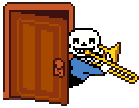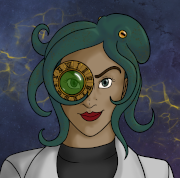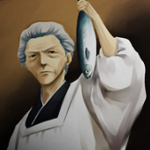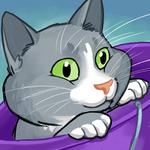|
I dunno, I feel like for me the question is one of: are you in the character's head? Then if their perceptions are colouring the scene, why isn't their voice? It doesn't need to be super heavy handed but if you're rotating pov you should probably be able to tell the difference between characters very quickly.
|
|
|
|

|
| # ? May 13, 2024 21:31 |
|
Screaming Idiot posted:I don't know if anyone's read Joe Abercrombie's Best Served Cold, but one of the gimmicks I enjoyed about it was that every chapter centered around a different character, and the narration switched to that character's voice. NiffStipples' remark about his narrator being a With my writing style, I refuse to explain anything unless the character has a reason to shift their train of thought towards it. 90% of the time I incorporate a previous experience with something - e.g. "the last time the clouds were this color was back when (wacky poo poo happened)..." or "He was usually an rear end in a top hat to his customers unless they dressed expensive. It ended up biting him in the rear end when (wacky poo poo happened)..." This allows me to speckle character history throughout my book rather than taking a steamy information dump all in one place that may or may not all pertain to what the gently caress is happening at that moment. I also shift my style of narration across different character's POV. I will write short and shallow with characters who are aggressive or stubborn, generally narrating with the same tone my character would talk in. If my character was stupid to a certain subject, the narrator would explain something only to the limit of the characters knowledge, possibly describing something with overly inflated words that sound scientific. If my character was on drugs, I'd narrate something like "The sky was pretty that day and managed to take her mind off the assholes." to something more along the lines of, "The atmosphere where it was outdoors had a tingling pleasantness to it, making it hard to remember the assholes that were rear end in a top hat-ish. Assholes..." Some characters have a specific format in narration when certain things happen. One character in specific, I'd let her mind wander with recent events, writing 6-8 line paragraphs with her interjecting out loud a one liner sentence to sum up her feelings on the matter. Sometimes I'd let the environment interrupt this, like when all of a sudden, important thing 'A''s paragraph immediately shifts to some jerk who gave her a look like she was crazy. I'd then narrate the rest of the paragraph in a snarky and defensive attitude, making sure to also write a small blurb about the jerk being a jerk. One last thing to mention is that you can still get away with describing other characters quite well. I'll generally go ahead and explain other characters emotions and feelings as if they were almost POV themselves, pending that my current POV character knows the person (or type of person) well enough to come to an assumption based on behavior and body language. I haven't written a character who had poor judgement of social behavior yet, but it sounds like a creative goldmine. I bet someone could come up with hilarious narration between someone's inability of deciphering social cues and the way they describe it (or lack thereof). I'm not sure what this form of writing is called or if it's actually a thing though. I just know I've been quite pleased with the outcome. It's only added emphasis on my character's personalities and exposes their flaws, making their shortcomings more human-like and endearing as they grow and learn. EDIT: Reread your post and saw that you already said this was a thing. I am a good reader. NiffStipples fucked around with this message at 05:49 on Dec 9, 2015 |
|
|
|
This pretty much all falls under the limited third person perspective, yeah. Basically if you're using it your character's voices probably should be colouring the narration to at least some extent. You can hammer on it or you can do it subtly or a wild world of things in between. Different characters are gonna have different takeaways from the same scene; they'll notice different things, they'll emphasize different things, and so on, and so forth. That alcoholic demon lord, were they to walk into an empty room with a bottle of whiskey standing on the table, would probably narrate that act differently than if they were your giant robot angel. And so on.
|
|
|
|
Going back to trimming: just rereading the earlier chapters there's a lot of "tell, don't show", which goes hand in hand with repetition anyways. Something like, "They leaned in close to avoid being overheard". The second part of that sentence is totally unnecessary. I've only cut out 200 something words over 5 chapters, but bloat is bloat.
|
|
|
|
magnificent7 posted:
Cool post! Here's a quick question: what's the difference between fantasy genre and young adult? Is there one? Its hard to think that fantasy can be literary or mature enough to not qualify as YA, but I'm not exactly an expert here. EDIT: And what does this mean? quote:JMW Editor / Monica ž@JMWEditor · Nov 20 From the tenqueries twitter page. You're not supposed to be sending inquiries in that are in Word? Shageletic fucked around with this message at 22:29 on Dec 10, 2015 |
|
|
|
Shageletic posted:Cool post! Here's a quick question: what's the difference between fantasy genre and young adult? Is there one? Its hard to think that fantasy can be literary or mature enough to not qualify as YA, but I'm not exactly an expert here. Different agents have different guidelines, but if they are talking about blind queries, I'm pretty sure literally nobody wants you to send a blank email with part of your manuscript attached. Generally you are supposed to be pitching them a manuscript concept that they will then request part / all of if they are actually interested in it. Shotgun-blasting every agent you can find with an impersonal copy + pasted letter and an unsolicited chapter of your book is probably a good way to make sure you never, ever get published.
|
|
|
|
Typically they don't want Word documents or attachments because of viruses and spam filter reasons. Most agents don't mind if you include a sample chapter since your writing is what will ultimately give them a decision, but it should usually be after the main query and pasted into the body of the email. Some agents will have other guidelines or request that you send only the query, but as always, research their pages first. When I was querying, I saw a lot more agency pages that requested sample pages than didn't. Most of the ones who only wanted the query letter were really huge agencies like WME and UTA. Almost none of them wanted anything sent as an attachment, though.
|
|
|
|
Shageletic posted:Here's a quick question: what's the difference between fantasy genre and young adult? The fantasy genre contains fantastical elements such as magic and dragons, and young adult is specifically aimed at young adults, hope that answers your query.
|
|
|
|
Shageletic posted:Cool post! Here's a quick question: what's the difference between fantasy genre and young adult? Is there one? Its hard to think that fantasy can be literary or mature enough to not qualify as YA, but I'm not exactly an expert here. The YA genre focuses on young characters dealing with issues of finding their personal identity or their role in the world. Building friendships and relationships and issues of responsibility tend to take the focus. The fantasy genre is a genre generally notable for its inclusion of magic or other non-realistic elements. The two genres have no real relation other than sometimes there are books in both genres.
|
|
|
|
Shageletic posted:Cool post! Here's a quick question: what's the difference between fantasy genre and young adult? Is there one? Its hard to think that fantasy can be literary or mature enough to not qualify as YA, but I'm not exactly an expert here. .......... There's no precise definition of fantasy, but roughly any fiction that contains unrealistic elements explained by "magic" of some sort. They can involve pretty much any other themes, regardless of maturity level, and be of any literary level. There are fantasy novels that include drug addiction, graphic sex, complex political plots, violence, what-have-you. Although to be fair, there are also YA novels including some of those, too. Usually not graphic sex or violence, though. One of the most popular fantasy series in recent years is GRRM's Song of Ice and Fire, and I really don't think anyone can reasonably argue that it is YA. Ditto China Mieville's Bas-Lag books. YA is fiction aimed at readers and featuring characters roughly 14-18 years of age, of any genre. It doesn't have anything to do with fantasy whatsoever, except that some YA novels happen to also be fantasy novels. No one can suggest that something like Eleanor and Park, for example, is fantasy. Furthermore, literary-ness has nothing to do with something being YA or not. Bourne Identity, DaVinci Code, The Stand, whatever other genre novel you want to think of aren't "literary," but they sure as hell aren't YA. Polarizing though it maybe, Catcher in the Rye is arguably YA, as are the classics Alice in Wonderland and Oliver Twist. Nor literary-ness have anything to do with being "fantasy." If you want to accept Magical Realism under the umbrella of fantasy, then I don't think anyone will have much trouble accepting Gabriel Garcia Marquez as adequately "literary" for nearly any purpose that requires a high degree of literary-ness. If not, we can always discuss whether or not the Epic of Gilgamesh, Beowulf, The Odyssey, or A Midsummer's Night Dream count as fantasy. Or whether or not Tolkien counts as "literary." Or if The Hobbit is YA. Someone else might have some other examples of potentially "literary" fantasy to throw in the ring, but since "literary enough to pull it out of the realm of YA" is a concept that makes no sense to me, I'm not sure what those would be. Personally, Lord of the Rings is sufficiently If anyone wants to get into a debate about my definition of "fantasy," just know in advance that I'm not saying it's actually definitive or anything, just adequate enough to differentiate it from YA, because .... Dr. Kloctopussy fucked around with this message at 18:59 on Dec 11, 2015 |
|
|
|
Shageletic posted:From the tenqueries twitter page. You're not supposed to be sending inquiries in that are in Word? No, a query should be an email with the query in the body of the email, and it should be short. See http://queryshark.blogspot.com for a bunch of advice on how to write query letters from an agent.
|
|
|
|
Chairchucker posted:The fantasy genre contains fantastical elements such as magic and dragons, and young adult is specifically aimed at young adults, hope that answers your query. Wait, I've been watching Game of Thrones with my kids this whole time!
|
|
|
|
Thanks for the replies, the question came from seeing some of those queries from editors asking for YA with a fantastical twist to them.
|
|
|
|
Agents are all cock swaddling litter box munchers. I will update this opinion when an agent gives me a fat rear end book deal. Until then, I totally know what I'm talking about. Ask anybody.
|
|
|
|
magnificent7 posted:Agents are all cock swaddling litter box munchers. Agents are really useful and if your agent's remotely competent they will gain you more money on the advance than they take as cut. Also there's so much weird dodgy poo poo in publishing that a good agent will steer you right around. I am getting translated into German and Turkish thanks to my agent, that's free money since I have to do no work and hell if I know how it could've happened otherwise 
|
|
|
|
DIE VERRÄTERIN
|
|
|
|
Shageletic posted:Thanks for the replies, the question came from seeing some of those queries from editors asking for YA with a fantastical twist to them. These might be referring to contemporary YA books, with small fantastic elements, kind of like magical realism. I haven't seen many of these, and can't think of any. I'll dig through Goodreads. Or they might be requests for YA fantasy, a well established genre, which is an overlap between YA (aimed at the "young adult" market) and Fantasy (containing the fantastical twist). Popular recent examples include: Throne of Glass Series by Sarah J. Maas Lunar Chronicles Series by Marissa Meyer (Although this one is also sci-fi and dystopian....) Uprooted by Naomi Novik Red Queen by Victoria Aveyard A Court of Thrones and Roses also by Sarah J. Maas An Ember in the Ashes by Sabaa Tahir Six of Crows by Leigh Bardugo (author of the best-selling Grisha series) The Wrath and the Dawn by Renee Ahdieh These are the books are from the Goodreads 2015 Choice Awards - Best Young Adult Fantasy Books Top 20 (whatever that's worth), that I have read. I've also read the first books in two other of the top 20 series, but I (conveniently?) don't consider them fantasy. I don't know if that makes me an expert, but if you have any questions about YA fantasy, I am definitely willing to talk about it FOREVER. AND EVER. (p.s. knowing about/reading in the genre you want to write in is important. Also fun! Like, why are so many characters named Raffe right now??? I take it from your question you are not interested in this genre, though.) Dr. Kloctopussy fucked around with this message at 11:34 on Dec 18, 2015 |
|
|
|
Hi I am now in the "researching agents" portion of this whole thing and it's actually pretty fun. Kind of like tracking down leads. (Except for the part where I see that my friends already follow the agents I'm interested in on Twitter, and now I have to harangue them for help) change my name fucked around with this message at 18:21 on Dec 27, 2015 |
|
|
|
Dr. Kloctopussy posted:
Thanks for the informative reply. I'm not definitively uninterested in the genre, but the fantasy book I've been wrangling with doesn't seem to match the requirements of the genre (the protagonists are adults, adult themes, etc), but I've been tinkering with an idea that might though, down the line, so this info is pretty useful. That second idea touches on what I loved about the YA genre as a kid, sci-fi and teenage issues, smashing together unexpectedly.
|
|
|
|
http://www.writersdigest.com/editor...ing-competition
|
|
|
|
I've just discovered a thing that seems really dumb, but has been spectacularly effective. If you are writing about a place that does not exist, draw a map of it. I've been stalled on a fantasy project for weeks now, and I caught up with my sister (an architect) over Christmas. Together, we drew a map of a realistic fantasy city that would work with the plot. I have no intention of sticking it in the book, but it has been amazingly useful in the writing process because I have a much more tangible feeling of place to write around. It's not even very good: it has placenames like "a really big lake" and "a plot important tall building", but I cannot get over how useful it is. So yeah, seems dumb but is a great idea. Carry on.
|
|
|
|
Narrative maps are good. They help stuff gel when even outlines fail.
|
|
|
|
How much pre-planning do you usually put into your shorter writing? One big problem I've always had when I write anything, short fiction or a long blog post or documentation or something, is that I have a hard time going from head to outline to text. Head to text is fine. When I'm trying to write an outline of my amazing ideas, I end up either writing the whole drat text in the form of a bulleted list because dammit I need to get everything down before I forget, or I get frustrated, throw out any attempts at organization, and write what comes to mind however it sounds and clean it up once I've reached the necessary amount of word vomit.
|
|
|
|
edited to add: Nevermind. I clicked on the little question mark and saw that I had basically asked the exact same question earlier in the thread, over a year ago. Guess I forgot the advice Blue Star fucked around with this message at 08:00 on Jan 1, 2016 |
|
|
|
I went from Thunderdome stories (like 2k words max) to trying a 50k+ word novel. It didn't work out so well! I think somewhere in between I may have done two or three longer short stories of something like 8,000 words. I didn't plan anything out very well. For the first novel attempt I did some detailed character sketches, but the plot--which is the loving CONFLICT--of my story was murky as hell. I made it to around 50,000 words before I realized the novel was really bad and was going nowhere. It would need a complete re-write to be anything worthwhile, etc. etc. Starting in October, I've now written and published a 35k-word novella every month (October, November, and December). I may try to go to 50k words at some point, but a 35k-word novella is a really great stepping stone between shorts and novels. I work a full-time job and am able to get the final draft done in under 30 days, so it's also a project you can take on and finish in a reasonable amount of time. This is nice because it helps stop you from becoming one of those people who has been working on the same novel for three years. The first novella I did, I just kind of shat it out. I ran out of plot about 20k words in and had to make up some dumb poo poo to fill the remaining 15k words. Second novella, I did a basic outline that gave me a rough idea of what would happen. As I started writing, I realized what I planned out wasn't going to cut it, so I changed the last 33% of the story on the fly. The first novella got some negative reviews on Amazon pointing out plot inconsistencies and pacing issues, but the second novella only has positive reviews so far. For the third one, I read http://www.amazon.com/Story-Engineering-Larry-Brooks/dp/1582979987/ref=sr_1_1?ie=UTF8&qid=1451630749&sr=8-1&keywords=story+engineering this book, and it really changed things for me. I normally hate when people gush about stuff like this, because you really have to be in the right state of mind to absorb a book like this (or Save the Cat, or whatever 'writing advice' you are reading). The main thing you must do is try to write and finish a novel(la) in a fixed amount of time. Do it, finish it, send it out to agents (or self pub it if you are self-pubbing). As soon as you send the book out to an agent (or if you are self-pubbing, as soon as you send it to your editor) start writing the next one the following day. Don't give yourself a month to read the book that tells you how to write, and don't spend ages thinking up an idea in your head before you write anything. Books on writing are not excuses to not write. Assuming you actually are writing a lot and ready to take the advice, on my third novella I did the following according to Story Engineering structure: 1) Thought out my central conflict. I had to make sure it was good and solid and would drive everything else. 2) Thought out plot point 1, which is when the conflict/antagonist shows itself, and the protagonist pivots toward a reactive mode against the antagonist. This occurs at the 25% mark and triggers Act II. 3) Thought out the middle point. This is when the protagonist stops being reactive and pro-actively makes some change to fight back harder against the antagonistic force(s). 50% mark. 4) Thought out plot point 2, which is when the protagonist gets the last injection of information that puts him on the final push against the antagonistic force. 75% mark. If you're doing three-act structure, plot point II and the "mid-point" I'm mentioning kind of merge I think. Once you have these things laid out, it's like "tent poles" or the scaffolding or something of what you are building. If you know you are doing 40k words, for instance, you have 10,000 words of intro until Plot Point 1. After the antagonist arrives, you have 10,000 more words of the protagonist reactively floundering against the antagonist until the mid-point. After the mid-point, you have 10,000 more words of the protagonist "on the attack" and beginning to face their inner demons etc. Finally you reach Plot Point 2, and all the inner demons are resolving, all the information and characters are present and introduced, and you have 10,000 more words of final resolution. In addition to this, it's suggested you add a "pinch point" right in the middle of act 2 and act 3. Act 2 might mostly be the protagonist running away, but in the middle of it, the antagonistic force should do something or be shown somehow in a way that reminds the reader and/or the protagonist that it's an ANTAGONIST and is scary/loving things up/endangering people (whatever it's doing to be an antagonist). The same happens in the second pinch point in Act 3. There is also an optional "lull" that usually happens right after the second pinch point. So all of this poo poo set up and planned out makes it really easy to write, believe it or not. When you are writing Act I, you're writing to set up and work toward Plot Point 1. After plot point 1, you're writing toward pinch point 1. After pinch point 1, you're writing toward the mid-point. This makes it pretty clear what you need to make happen, and it actually ends up giving you way more freedom to have fun with your writing when you sit down to write. You'd think having to plan all this would sap the fun completely out of everything, but it lets you just sit down and WRITE, and it lets you make the characters and everyone really breathe and develop. Once I had all this plotted out, I considered just starting writing, but since I had so much planned already, I decided to do a scene-by-scene summary. I wrote out every scene in the book, and included in the scene summaries what crucial plot element the scene was revealing, and then how the ending of each scene (the book calls this a "cut and thrust") surprises the reader and makes them want to read right on to the next scene. I think I had around 30 scenes in total by the time I was done planning. It was very easy to write these out, because all the structuring I had already done made it pretty clear what each scene needed to accomplish. I struggled a bit at times trying to make stuff flow well or be logical, but this strain here made the actual writing much easier. I started writing, and every time I sat down I just filled in the scenes as they were planned. The characters came to life as I started writing, and I ended up not able to write every scene as planned. I also struggled getting every act to be the length it should have been. When I reached plot point 1, I was at something like six or seven thousand words instead of 8 or 9 thousand. I tried to correct a bit as I went, but if I had planned a bit better I could have avoided this. The biggest issue I had was not planning act IV in enough detail ahead of time, and that showed when I went to write it. I just finished it at something like 4,000 words instead of 9,000, and then I stepped back, looked at the whole story, and thought of a pretty crucial two scenes that I needed to add into act IV to make the story gel, and to avoid readers saying, "why didn't this thing that was developed so much earlier not have any real payoff?" I am 100% doing this strategy for my next book, and I'm expecting it to work even better this time around. I can hopefully have a better idea how long each scene will actually be while planning, and I won't skimp on act IV this time. The crucial thing is that you will have to do this kind of planning either way. If you just write by the seat of your pants and manage to finish the story, you're going to have some SERIOUS work to do in your second (and third and fourth) drafts. You're going to lose entire scenes that took you days to write, and you'll have to write in new ones as well. It just is so much easier to plan ahead of time before you do all the writing. Planning should take you a few days at maximum though. If you find yourself two weeks deep in planning, then you're just using it as an excuse not to write, and you probably should "just loving write."
|
|
|
|
angel opportunity posted:I went from Thunderdome stories (like 2k words max) to trying a 50k+ word novel. It didn't work out so well! I think somewhere in between I may have done two or three longer short stories of something like 8,000 words. I didn't plan anything out very well. For the first novel attempt I did some detailed character sketches, but the plot--which is the loving CONFLICT--of my story was murky as hell. I made it to around 50,000 words before I realized the novel was really bad and was going nowhere. It would need a complete re-write to be anything worthwhile, etc. etc. I'm going to copy and paste this to my writing tips folder, thanks.
|
|
|
|
That's great advice, thanks! I'm not really trying to write a novel. Most of my creative writing consists of embarrassing play-by-post RPG games on Internet forums. I like writing and I like reading short stories. (I particularly like SFF but I'll read anything.) I want to start writing short stories, but... abortive attempts come out reading like embarrassing play-by-post RPG games and into the garbage can they go. The obvious solution is A) read more stories and B) write more stories and I want to make B) as effective as possible for improving.
|
|
|
|
The next time I write a short story to try to publish, I'm going to use that exact same structure
|
|
|
|
I think that in a short story the 'plot point 1' in that skeleton should hit in the first few paragraphs.
|
|
|
|
angel opportunity: That's very informative! Thanks! How many characters should one have in a novella? I've heard that you should only have a single viewpoint character. What do you guys do with your novellas? Another question, this time about the three-act structure: I've heard that the 3-act structure actually isn't all that great, and that we should aim for 4 or even 5 acts. Apparently whenever the protagonist makes some choice that changes the situation and they can't go back on, that signifies an act change. So Act 1 is all set up, then the protagonist makes a choice or crosses some threshold into Act 2, and this keeps happening until the final act. This leads to more narrative propulsion. I can't remember where I read this, though.
|
|
|
|
I think the main thing is that you just have some way you outline and stick to it for a while. If you stick to a 3-act structure--and assuming 3-act structure is indeed the worst of the structures for whatever you're writing--it will be better than just writing stream of consciousness and having a mess of a first draft that requires major re-writes. You don't want to fall into the trap of "min/maxing" different structure and outline methods, which leads you to the trap of not actually writing. Don't read five different books and scrutinize the decision, just pick some method of outlining, use it quickly, and write.
|
|
|
|
A story I wrote got published here: http://psychopompmag.com/read/vol-3-fall-2015-summer-2016/issue-10-winter-2016/ Thanks to rhino who helped proofread. (It's the first one)
|
|
|
|
What are the best resources for doing Lit Agent research? Standard multigenerational literary novel. Not YA. Is Writer's Market worth paying for?
|
|
|
|
Defenestration posted:What are the best resources for doing Lit Agent research? Standard multigenerational literary novel. Not YA. Look up books that are like your book (or that fall into the same genre and have been successful). Look up who repped them. Check their websites to see if they're available. Follow their guidelines and query away! That's all you need.
|
|
|
|
newtestleper posted:A story I wrote got published here: http://psychopompmag.com/read/vol-3-fall-2015-summer-2016/issue-10-winter-2016/ Congrats. ...and to piggyback on that, drat, charging a submission fee and not paying authors is a new level of garbage.
|
|
|
|
I wrote a story featured in an anthology and it was reviewed mostly favourably on Strange Horizons. I don't know how close that is to getting published by SH but woohoo? http://www.strangehorizons.com/reviews/2015/11/cyberpunk_malay.shtml (I'm Han)
|
|
|
|
newtestleper posted:A story I wrote got published here: http://psychopompmag.com/read/vol-3-fall-2015-summer-2016/issue-10-winter-2016/ The Saddest Rhino posted:I wrote a story featured in an anthology and it was reviewed mostly favourably on Strange Horizons. I don't know how close that is to getting published by SH but woohoo? http://www.strangehorizons.com/reviews/2015/11/cyberpunk_malay.shtml (I'm Han) Grats to you both! Let's hope 2016 sees lots of CCers getting published to critical acclaim.
|
|
|
|
The Saddest Rhino posted:I wrote a story featured in an anthology and it was reviewed mostly favourably on Strange Horizons. I don't know how close that is to getting published by SH but woohoo? http://www.strangehorizons.com/reviews/2015/11/cyberpunk_malay.shtml (I'm Han) Congrats! And with Zen Cho as an editor, too!
|
|
|
|
ravenkult posted:Congrats. I didn't pay a fee. They have free submission periods, and I think a year round express thing you can pay for if you're so inclined.
|
|
|
|

|
| # ? May 13, 2024 21:31 |
|
The Saddest Rhino posted:I wrote a story featured in an anthology and it was reviewed mostly favourably on Strange Horizons. I don't know how close that is to getting published by SH but woohoo? http://www.strangehorizons.com/reviews/2015/11/cyberpunk_malay.shtml (I'm Han) Congrats!
|
|
|






 -faced neutral made me think -- as "wacky" as I've tried to make my story and my characters out to be (alcoholic demon lord! giant robot angel! telekinetic cyborg parrot!), the narration is stiff at best and cripplingly, cringe-worthily awkward at worst. Would changing the narrative voice to fit the current character POV work better, or would I be better off trying to fix the narration on its own?
-faced neutral made me think -- as "wacky" as I've tried to make my story and my characters out to be (alcoholic demon lord! giant robot angel! telekinetic cyborg parrot!), the narration is stiff at best and cripplingly, cringe-worthily awkward at worst. Would changing the narrative voice to fit the current character POV work better, or would I be better off trying to fix the narration on its own?



















